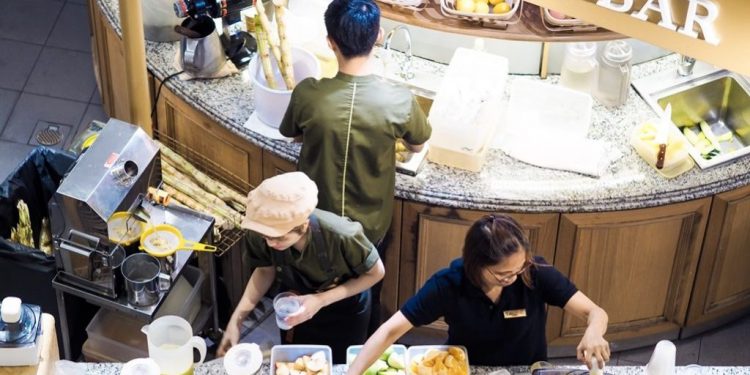I am reminded of the saying “old is gold” when writing about some of the policies the Government has introduced to enable companies to tap on the experience, knowledge and ‘youthfulness’ of mature workers in Singapore.
We’re sure you know that the re-employment age has been extended till 67 for workers who want to continue to have a job.
But as you may know, age comes with its own set of challenges at the workplace.
One way to help mature workers on the job could then be to redesign them to make them age-friendly.
Heard of WorkPro? It’s a tripartite scheme that companies can tap on to make the workplace age-friendly so that mature workers will be able to remain productive, and in turn, help companies to remain competitive.
And in case you’re wondering, NTUC is one of the official programme partners for WorkPro. Here are more details on the scheme.
What is WorkPro?
Started in April 2013 and enhanced in 2016, WorkPro aims to support companies in implementing age-friendly practices and redesigning workplaces to create easier, safer and smarter jobs for mature workers. It also supports the implementing of flexible work arrangements for all workers.
Considering the current manpower crunch that is affecting many industries today, we think this may be a good way for your management partners to attract and hire more mature workers.
How much funding can a company get under WorkPro?
Under the enhancements to WorkPro, companies can receive a grant of up to $480,000 to support the implementation of initiatives in a few areas.
If you have an ageing workforce, you can choose to redesign your jobs or implement age-friendly practices, or both.
You also have the option of appealing to working parents who have a variety of caregiving responsibilities with the Work-Life Grant.
The table below might make things clearer.
| Funding support | Funding amount | Description |
| Age Management Grant | Up to $20,000 per company. | For companies to:
|
| Job Redesign Grant | Up to $300,000 per company, multiple project applications are allowed. | For companies to create easier, safer and smarter jobs for older workers aged 50 years and above.
Companies can apply for the Job Redesign (Rider) if the following conditions are met:
|
| Work-Life Grant | Up to $40,000 per company for Developmental Grant.
Up to $120,000 per company, over three years, for FWA Incentive. |
For companies to implement and sustain work-life strategies, particularly flexible work arrangements (FWAs). |
Has WorkPro been successful so far?
If you’re still unsure about the programme, you might be glad to know that the Manpower Ministry (MOM) gave an update on WorkPro during the recent Budget debate. Since its enhancement in 2016, more than 650 companies have tapped on funding support.
More importantly, more than 10,000 mature workers aged 50 and above have benefited from the scheme.
MOM added that job redesign has also created new jobs and opportunities for mature workers.
For more information, contact NTUC or NTUC’s e2i (Employment and Employability Institute).
| Programme Partners | Phone | Website | |
| NTUC | 6213 8383 | workpro@ntuc.org.sg | www.ntuc.org.sg |
| e2i | 6474 0606 | followup@e2i.com.sg | www.e2i.com.sg |
Success Story
We bring you the highlights of the journey by a management partner from the Attractions, Resorts and Entertainment Employees’ Union.
The American Club Singapore recently tapped on WorkPro to redesign jobs in two areas to benefit mature employees working in the kitchen.
- Salad Drying Process
Previously, manually drying salads took up nearly two hours of the kitchen staff’s time daily.
The physical task of spinning salads that weighed approximately 20 kilogrammes was a heavy load for mature workers. And repeating this action could be a “recipe” for back injury over time.
Thanks to WorkPro, the salad drying process is now automated. Salad-spinning is done in ten minutes rather than two hours.
The older kitchen helpers and cooks are also relieved of the physical load of spinning the salad manually.
- Meat Patty Making Process
In the past, the culinary team had to make meat patties by hand daily, producing 240 patties per hour.
Now the patty forming machine has enabled the older cooks to produce up to 1,200 patties per hour, bringing about higher output. They are also able to cope with an increased demand when it arises.
The company has since channelled the productivity savings from the projects into annual increments ranging from $31 to $121 per month for some 250 staff. The average increment for rank-and-file staff was 3 per cent.
Featured Photo: Sorbis/Shutterstock.com

